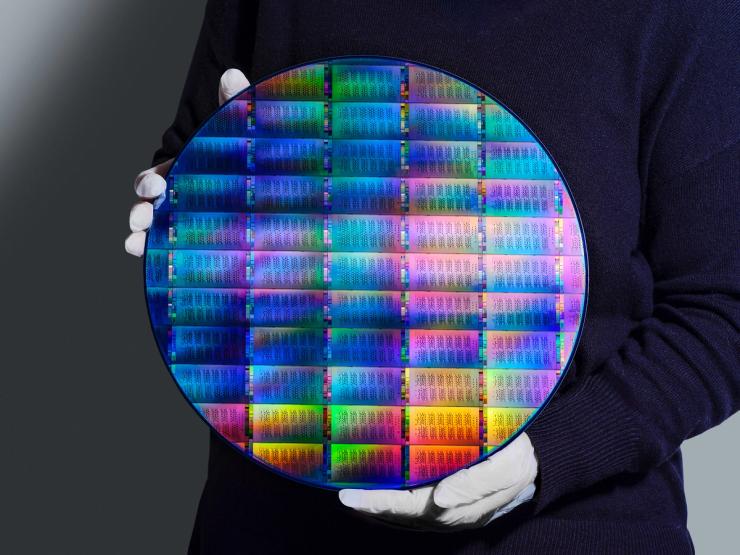The News
IBM is hoping that an investment in quantum tech can transform industries worldwide — and push the company back into the center of the tech conversation.
Quantum computing aims to solve problems too complex for classical computers to handle by using quantum bits, or qubits. Unlike traditional computer bits, which can only be in one of two states, qubits exist in multiple states at once and can become linked, enabling more information to be processed in new ways. Companies are racing to build the first quantum computer that can reliably handle its own errors as its computations grow, called a “fault-tolerant” quantum computer.
IBM bets it will be able to make such a computer by 2029, through its method of cooling superconducting qubits and using microwave pulses to measure them. It says one of the processors, called Nighthawk, moves the field forward by handling tougher computations with the same level of accuracy as its predecessor. The other chip, Loon, is an experimental processor that demonstrates IBM can put all key hardware components into a device it will need to build in the future — a starting point to scale from.
Google’s quantum computers use a similar type of superconducting qubit, though the company is focusing more on experimental performance and error correction than on developing commercial-scale systems. Other companies are taking different approaches, such as storing qubits in trapped ions or encoding them in photons.
“We believe that IBM is the only company that is positioned to rapidly invent and scale quantum software, hardware, fabrication, and error correction to unlock transformative applications,” Jay Gambetta, IBM’s director of research, said in a statement.
It’s an ambitious claim. The 114-year-old company is competing against a well-funded set of startups and research behemoth Google.
The industry is ramping up to achieve “quantum advantage” — the point at which quantum computers can solve problems faster than classical computers — which is widely expected to be reached by the end of next year. Various tech firms have announced quantum product improvements in recent months, from Quantinuum’s new computer to Google’s algorithm, which it says has reached quantum advantage — though some researchers are skeptical.
Google is likely to launch a fault-tolerant quantum computer to users first, said analyst Rob Enderle, who expects it will be of “[lower] quality than IBM is likely to launch with.” IBM has “the advantage of focus,” he said. And, perhaps more importantly, the company’s enterprise sales business gives it a pathway to building a business around the technology.
In this article:
Step Back
The Trump administration has taken an interest in boosting quantum development. Darío Gil, undersecretary for science at the Department of Energy, last week challenged researchers to create the first fault-tolerant quantum computer that will accelerate science by 2028, one year ahead of IBM’s guidance.
“There’s a difference between demonstrating components and delivering something to users,” IBM’s Gambetta said. “I feel confident we can deliver all the components by 2028.”
Rachyl’s view
The hype around AI turned one of IBM’s longtime competitors, Microsoft, from a maker of ubiquitous software into a top contender in an exciting tech arms race. It made Nvidia a household name and Jensen Huang’s fashion choices global news. Quantum promises similarly transformative technology. If IBM can deliver on a fault-tolerant quantum computer, that breakthrough could have an equivalent effect on the legacy tech business.
IBM last captured the public’s imagination for technical innovation in 2011, when its Watson computer appeared as a contestant on a three-day Jeopardy! program, ultimately winning the top prize. The company cruised on that success, and had Watson suggest potential diagnoses for medical patients, advise Wall Street, and act as a personal shopping assistant. (Sound familiar?) In the two years following Watson’s Jeopardy! performance, IBM’s stock climbed 25% on strong earnings and investor confidence, continuing its growth from late 2008. Meanwhile, Google, Microsoft, and Amazon were speeding ahead in cloud computing — a business that would shape the next decade for Big Tech.
IBM’s revenue and profit declined most quarters after 2011, and the company failed to meet a big earnings per share metric promised to investors in its “Roadmap 2015” strategy. By the late 2010s, analysts questioned whether Watson had generated any meaningful revenue for the company, and the supercomputer’s commercial offerings fell short of expectations. A $34 billion bet on software firm Red Hat in 2019 and a shift towards hybrid cloud helped stabilize the company, with investor interest growing on enterprise AI in recent years.
Still, the biggest tech companies are plunging billions into AI, capital outlays with which neither IBM nor virtually any other enterprise can compete. With its quantum investment, the company is hoping to jump to the next big thing. “It’s certainly our big bet,” said the research division’s director of marketing, Brittany Forgione.
Room for Disagreement
“It’s hard for me to see how quantum computing could ever become the ‘main thing’ for a company of IBM’s size, or how it could come anywhere close to rivaling the practical impact of AI,” said Scott Aaronson, director of the Quantum Information Center at the University of Texas at Austin.
While AI is influencing nearly every aspect of work, the “commercial applications of quantum computers tend to get wildly exaggerated,” he told Semafor. The computers will likely be game-changing in scientific research and cryptography, but potential use cases that will penetrate other industries, such as route optimization and machine learning, have yet to be proven, he said.
Notable
- China is also racing to create the first fault-tolerant quantum computer. Like in AI, researchers believe the US is currently leading in tech development, but China is quickly closing the gap. The narrative of US companies “battling each other is outdated,” a Bloomberg Opinion columnist wrote last month. “China isn’t just catching up, it’s generating new champions.”


